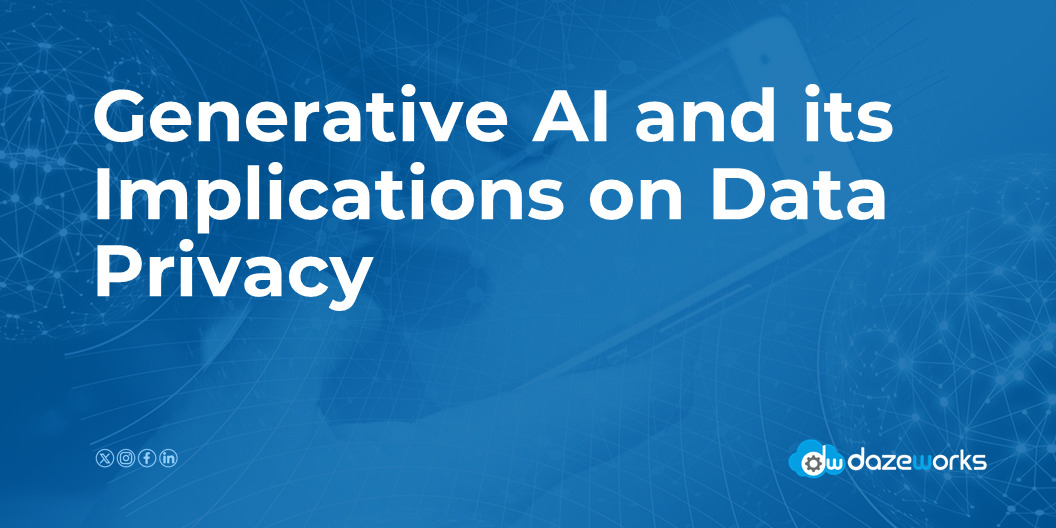
How to Improve Generative AI Practices to Boost Data Privacy?
minutes read
Every industry today is investing in Generative AI, raking in the benefits. However, the massive investment raises questions regarding legal and regulatory complexities. These questions center around security, data privacy, ethical use, and intellectual property. An updated knowledge of laws and regulations will allow organizations to use data properly and avoid any legal complications.
Comprehend the Ethical Implications of AI Technologies
Along with legal compliance, ethical considerations are also important when using Generative AI. At times, it can generate data that is ethically biased or questionable. Organizations must consider fairness, transparency, and responsibility for using such data. Moreover, there can be legal implications as many jurisdictions have proposed regulations against the use of such data in AI systems.
Set Up a Detailed Data Governance Framework
Establishing a detailed framework offers a structured approach to using AI responsibly and ethically. Additionally, a framework should highlight how data is procured, processed, stored, and shared. Moreover, it should also define the roles and responsibilities of people overseeing the data and establish detailed procedures for data protection.
Set Forward Stringent Data Security Measures
Data integrity and confidentiality are significant in the responsible use of AI. Strong security measures can help teams navigate the legal landscape of Generative AI. It is crucial to ensure all Generative AI systems are protected against security threats by using measures such as encrypting data, monitoring unauthorized access, and updating security protocols.
Identify Risk with Privacy Impact Assessment (PIA)
Conducting PIAs is an effective way to assess the risk factors when implementing AI technologies. It is especially important when working with applications that use personal data. The examination must evaluate how the data is collected, stored, processed, and shared. Moreover, the assessment should also understand how the use of data will impact individuals and the privacy measures in place.
Establish an Initiative-taking Plan in Response to a Breach
In the unfortunate instance of a data breach, be prepared with a well-defined response plan that includes:
- The process of identifying and investigating breaches.
- Notifying affected parties and regulatory authorities.
- Steps to mitigate the implications.
- Addressing customer concerns.
- Legal consultation to ensure compliance.
Maintain Strict Transparency and Consumer Awareness
The lack of transparency is one of the biggest challenges of Generative AI and a factor that hinders legal compliance. Regulations such as GDPR require that organizations must inform individuals how their data is used. When implementing Generative AI, make sure that you clearly explain what data is being collected from users, how it will be used, and how it will affect their privacy rights.
Conclusion
As the cyber world is growing and innovating, it is also dealing with threats to individuals’ privacy. While it is great how Generative AI can help businesses in a multitude of ways, organizations must be held accountable for how they use the data. Companies should be held responsible for not adhering to regulations and maintaining data transparency with their customers.
